With the growing challenges facing the Arctic, the European Union (EU) has an important role in strengthening Arctic cooperation and safeguarding the Arctic environment. This includes working with international partners to develop a coordinated and integrated observation system. This in turn will contribute to better monitoring and forecasting of significant changes, effective prevention and adaptation strategies to climate change, and sustainable development in the Arctic.
The temperatures in the Arctic continue to rise at more than twice the global annual average. Snow and ice are melting at an increasing rate, impacting both local ecosystems and the global climate system. The effects of a changing Arctic climate are felt across the high latitudes and beyond – with global environmental, economic, and social implications.
On 9 May 2021, the European Commission, together with ministers from 25 countries signed the 3rd Arctic Science Ministerial Joint Statement. This third edition highlighted and consolidated the leading role of the EU on Arctic science. It also identifies four urgent actions to address through international cooperation including
– implementing observing networks and data sharing
– enhancing understanding and prediction capability for Arctic environmental and social systems, for the global impact of these changes
The European Commission and the European External Action Service unveiled the new EU policy for the Arctic in mid-October 2021. The EU will further strengthen its engagement in the region, working with partners to ensure a peaceful, sustainable and prosperous Arctic.
To expand the global monitoring and forecasting capacities, and support the integration of a fit-for-purppse Arctic Ocean observing system, the EU funds various research and innovation projects, data infrastructures, and coordinating networks.
1) Coordination Networks
2) EU Infrastructures providing free access
to Arctic Ocean data
3) EU Research & Innovation projects
The European Union funds a number of projects dedicated to improving capacity, coordination and integration of monitoring and forecasting efforts of the Arctic Ocean under its H2020 Research and Innovation programme. These projects mainly focus on developing an integrated observation system, studying the impact of Arctic changes on the weather and climate of the northern hemisphere, and the effect of climate change on the Arctic.
For an up-to-date list of current and past Arctic-related projects funded by the EU H2020 R&I programme visit the EU Polar Cluster – Arctic Section by clicking the icon below:
New funding under the EU’s successor R&I funding programme Horizon Europe (2021 –2027) will be available to strengthen the EU’s involvement in the Arctic in line with the objectives of the EU Green Deal and Horizon Europe’s adaption to climate change mission.
Further resources
- EU Arctic Policy update: Joint Communication “A stronger EU engagement for a peaceful, sustainable and prosperous Arctic”, Oct 2021
- European Union and 25 countries sign Joint Statement to strengthen Arctic science cooperation, May 2021
- Ocean Decade Arctic Action Plan, June 2021 – developed by the Danish Centre for Marine Research in collaboration with the Ocean Decade Arctic Task Force




